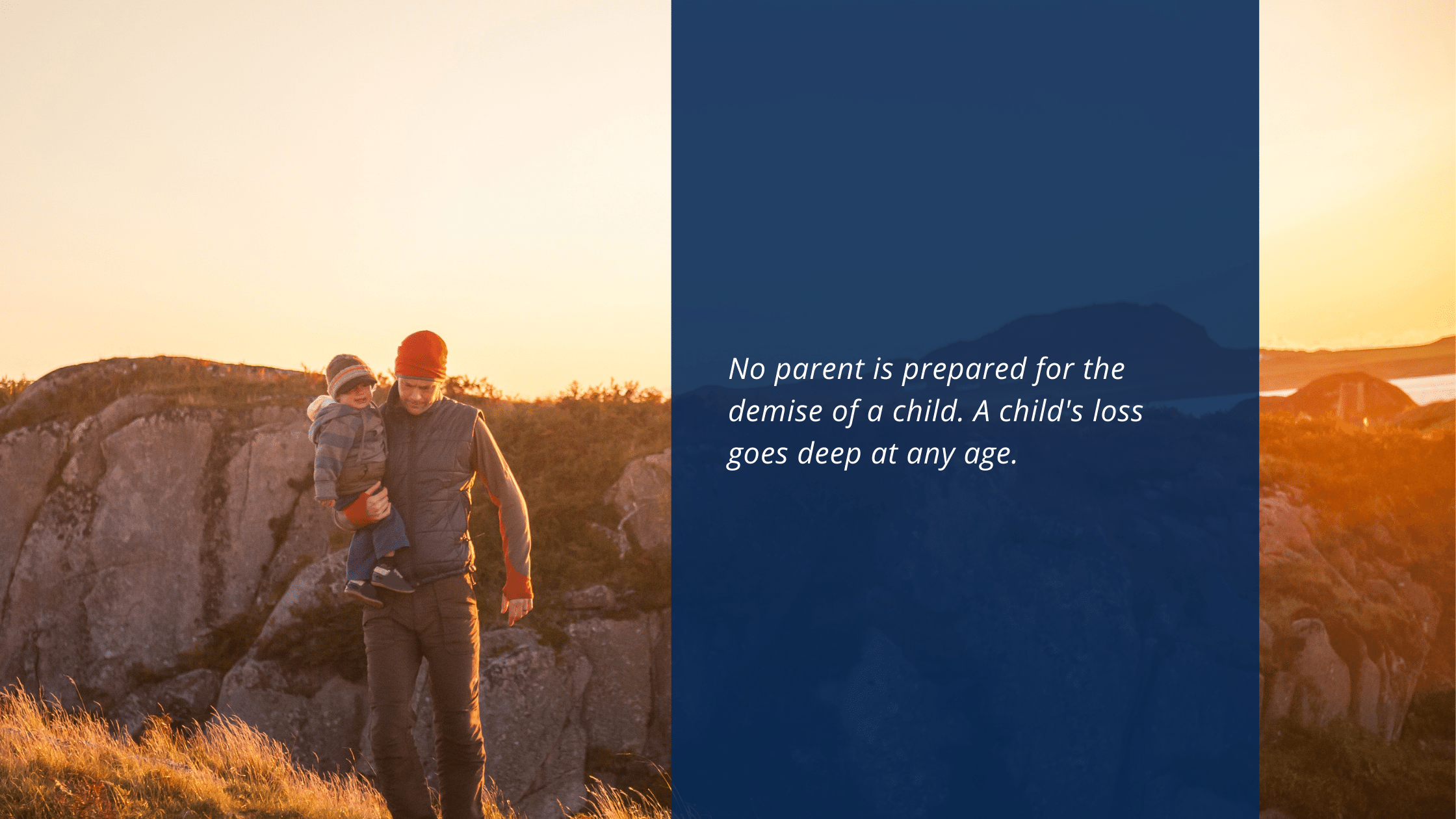
No parent is prepared for the demise of a child. Simply, children do not die first before their parents. It seems unnatural. However, we cannot control life. And, death could happen to anyone. So, it is important to remember that time spent with your child does not determine the extent of your loss. A child’s loss goes deep at any age.
You could also feel pain for the hopes and dreams you had for your child, the potential that will never come into being, and the experiences that you will never share. If you have lost your only child, you may also feel that you have lost your identity as a parent and potentially the opportunity for grandchildren. The pain of this loss will always be with you. Yet, over time, most parents find a way to move on and begin to relive the happiness and meaning of life.

Parents can be affected in different ways based on their gender and their daily role in a child’s life. One parent may find that speaking helps, while the other may need calm time to cry alone. Cultural expectations and role differences also have an impact on how parents deal with grief. Men are often expected to control their feelings, be strong and take over the family. One can expect women to cry openly and want to talk about their bereavement.
If you are a working parent, you could get more involved in your job to avoid the sadness and daily reminders at home. A stay-at-home parent can be surrounded by constant reminders and feel a lack of purpose now that their employment as a caregiver has come to an abrupt end. This is especially true for a parent who has spent months, if not years, caring for a cancer-stricken child.
Differences in grief can cause relational difficulties at a time when parents are in greatest need of each other’s support. One parent may believe that the other is not grieving properly or that the absence of open mourning means that they love the child less. Speak openly with your partner about your grieving. Work towards understanding and accepting the coping styles of others.
You should expect never to truly “get over” your child’s death. But you will learn how to live with loss, which is a part of who you are. The death of your child can make you think about your priorities and the meaning of life. This may sound impossible, but you can find bliss and purpose in life again.
For some parents, a milestone can be the creation of a legacy for their child. You can choose to pay homage to your child by volunteering in a local hospital or a cancer support organization. Or you can work to support your child’s interests when you do, start a memorial fund, or plant trees in your child’s memory. It is important to remember that it is never unfair to your child to go back into life and enjoy new experiences.
Every one of your kids makes a difference in your life. They teach you new ways of loving, new things about finding joy, and new ways of looking at the world. Part of every child’s legacy is that the changes they bring to your family continue after death. The memories of happy times you spent with your child and the love you shared will live and always be a part of you.